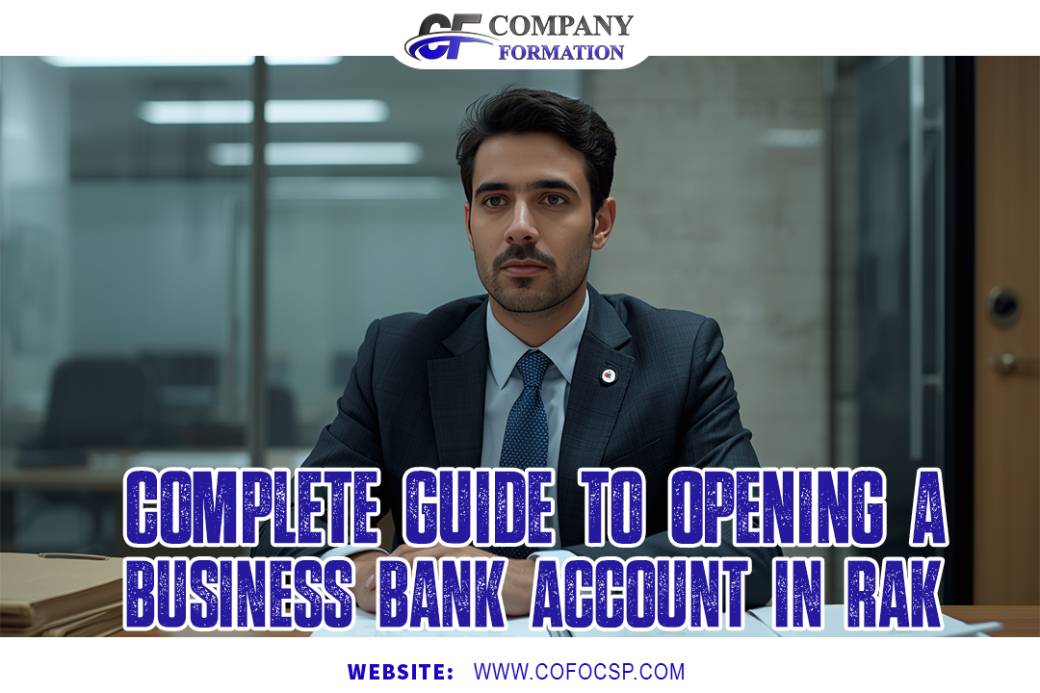How to Launch a Legal Tech Firm in Dubai | Your 2025 Guide to Success
To launch a LegalTech firm in Dubai, select a niche like AI legal research or contract automation, choose a free zone (e.g., DIFC or DMCC), register your trade name, secure a business license, and comply with UAE data protection laws. Expect costs of AED 25,000–65,000 and a setup time of 1–4 weeks.
Starting a LegalTech firm in Dubai feels like stepping into a world of opportunity. I’ve seen entrepreneurs transform ideas into thriving legal technology businesses here, thanks to Dubai’s innovative ecosystem and supportive policies. Whether you’re dreaming of AI-powered legal tools, blockchain dispute resolution, or legal process outsourcing, Dubai offers a unique blend of tax incentives, smart governance, and a growing demand for legal automation. This guide answers every question you might have, from UAE business setup to scaling across the GCC, with practical insights to help you succeed.
Why Is Dubai Ideal for Starting a LegalTech Firm?
Dubai is a global hub for legal technology, blending innovation with a business-friendly environment. Here’s why it’s the perfect place to launch your LegalTech startup:
- Zero Personal Income Tax: Keep more of your profits with no personal tax and a 9% corporate tax only on profits above AED 375,000 in free zones like DIFC or Dubai Silicon Oasis.
- Government Support: The UAE’s Vision 2031, Dubai Centre for Artificial Intelligence (DCAI), and Dubai Future Foundation offer grants, mentorship, and accelerators like Dubai Future Accelerators.
- Strategic Location: Dubai connects the GCC (e.g., Saudi Arabia, Qatar, Oman), Africa, and Asia, making it easy to scale LegalTech solutions UAE.
- Tech-Friendly Ecosystem: Events like GITEX Technology Week and hubs like Dubai Internet City foster collaboration and innovation.
I recall meeting a founder at a Dubai Future Accelerators event who launched a contract automation platform in DMCC. They leveraged UAE PRO services and scaled to Kuwait within 18 months, proving Dubai’s potential.
What Defines a LegalTech Company in the UAE?
A LegalTech company creates technology to streamline legal services, from AI legal research to e-signature platforms. Unlike traditional law firms, these businesses focus on automation, efficiency, and accessibility.
Core Offerings:
- Document automation: Tools for drafting contracts or legal forms.
- Legal analytics: AI-driven insights for case predictions.
- Online dispute resolution: Platforms for settling disputes digitally.
- Legal CRM: Software to manage lawyer-client relationships.
- Why It’s Vital: Legal technology saves time, reduces errors, and makes legal services affordable. For example, a virtual legal assistant can review contracts faster than a human, cutting costs for small firms.
In Dubai, LegalTech addresses local needs like Sharia compliance and bilingual legal tools (Arabic-English), filling gaps in a market still reliant on manual processes.
How Big Is the Dubai LegalTech Market in 2025?
The LegalTech Dubai market is booming, valued at USD 114.5 million in 2023 and projected to hit USD 234.4 million by 2030, with a CAGR of 10.8%. Here’s what’s driving growth:
- Demand for Automation: Law firms and SMEs seek AI legal tools and contract lifecycle management to replace paper-based workflows.
- Digital Courts: UAE Ministry of Justice supports e-court filings and video hearings, boosting demand for legal services automation UAE.
- Bilingual Needs: Few platforms offer Arabic legal software, creating opportunities for legal translation AI.
- Regional Potential: Dubai is a gateway to GCC legal markets, with Saudi Arabia and Qatar embracing digital transformation.
A LegalTech startup could offer blockchain dispute resolution for multinational clients, tapping into GCC growth.
What Are the Steps to Set Up a LegalTech Firm in Dubai?
Setting up a LegalTech firm in Dubai is straightforward with the right plan. Here’s a detailed guide based on my experience helping friends navigate UAE business setup:
- Choose Your Niche: Focus on AI case prediction, e-discovery platforms, or legal process outsourcing. Research local pain points like notarization workflows.
- Select a Jurisdiction: Opt for mainland (via Dubai Economy and Tourism (DED)) for local market access or free zones (e.g., DIFC, Dubai Internet City) for 100% ownership and tax benefits.
- Register a Trade Name: Pick a unique name compliant with UAE rules (no religious or offensive terms). Reserve it through DED or your free zone authority.
- Get Initial Approvals: Submit a business plan detailing LegalTech activities (e.g., software development, AI tools) to DED or free zone authorities.
- Secure a Business License: Choose a license like IT services or legal digital platform management. Verify the activity code aligns with your services.
- Lease Office Space: Use a flexi-desk (AED 5,000–15,000) in free zones or a mainland office for visa eligibility.
- Apply for Visas and Banking: Get an investor visa or Golden Visa UAE and open a bank account in Dubai with banks like Mashreq for tech startups.
- Develop Your Product: Build a LegalTech MVP with Arabic support and UAE data protection compliance.
Use UAE PRO services to handle business registration in Dubai, ensuring compliance with DED or free zone regulations.
Which Licenses Are Required for a LegalTech Business?
A Dubai LegalTech license depends on your services. Here are the main options:
- Software Development: For legal software like contract automation or e-discovery tools.
- AI and Machine Learning: For AI legal research or virtual legal assistants.
- IT Consultancy: For advising firms on legal innovation and digital transformation.
- Legal Digital Platform Management: For legal marketplaces or online dispute resolution platforms.
Free zones like DIFC Innovation Hub, Dubai Silicon Oasis, or DMCC streamline LegalTech licensing Dubai. If your platform offers legal advice, partner with a UAE-licensed lawyer to comply with Dubai Legal Affairs Department (DLAD) regulations.
Use APIs to connect with e-court platforms managed by the UAE Ministry of Justice, enabling seamless e-court filings and case tracking.
How Much Does It Cost to Launch a LegalTech Firm in Dubai?
Starting a LegalTech company in Dubai is cost-effective compared to global hubs. Here’s a 2025-adjusted breakdown, addressing the competitor gap for detailed cost variables:
| Item | Estimated Cost (AED) | Notes |
| Trade Name Registration | 700–1,500 | Varies by free zone or DED. |
| Initial Approval & Documents | 1,500–3,000 | Includes business plan review. |
| Business License (Free Zone) | 13,000–27,000 | Higher in DIFC, lower in DMCC. |
| Office Space/Flexi-Desk | 6,000–18,000 | Flexi-desk cheapest in Dubai Silicon Oasis. |
| Investor Visa & Medical | 3,500–6,000 | Includes Golden Visa UAE eligibility. |
| Emirates ID & E-Channel | 1,300–2,500 | Mandatory for operations. |
| PRO Services (Optional) | 3,000–7,000 | Simplifies business registration in Dubai. |
| Total | 25,000–65,000 | Budget for additional setup costs. |
Hire a business setup expert in Dubai to reduce costs and avoid delays. Bank account opening in Dubai is smoother with tech-friendly banks like Emirates NBD.
What Legal and Compliance Rules Must LegalTech Founders Follow?
Compliance is non-negotiable for a LegalTech firm in Dubai. Here’s what to focus on:
- UAE AI Law: For AI legal tools, adhere to DCAI guidelines on AI ethics, ensuring transparency and human oversight.
- Data Protection: Comply with UAE Federal Data Protection Law and DIFC Data Protection Law No. 5 of 2020, mirroring GDPR standards.
- Intellectual Property: Protect your legal software with trademarks and patents via the UAE Ministry of Economy, a member of the World Intellectual Property Organization (WIPO).
- No Direct Legal Advice: Your platform must support, not replace, lawyers. Use legal consultancy services with UAE-licensed lawyers for compliance.
Implement audit trails, explainable AI, and human-in-the-loop systems to meet DCAI standards, ensuring user trust and data security.
How Can You Build a LegalTech Product for Dubai’s Market?
Your legal software company in Dubai must solve local challenges. Here’s how to design a standout product:
- Bilingual Interfaces: Support Arabic-English for Sharia-compliant contracts and notarization workflows.
- Secure Design: Use end-to-end encryption, cloud-based storage, and role-based access control.
- Emerging Tech: Leverage NLP for legal translation AI, blockchain for smart contracts, or AI for litigation predictions.
Legal translation AI is a major opportunity. For example, a tool that translates Arabic legal documents for Sharia compliance could win over law firms. Test your LegalTech MVP with UAE lawyers to ensure usability.
Who Should You Hire for Your LegalTech Startup?
- Legal Advisors: Experts in UAE law, Sharia compliance, and cross-border legal tech.
- Developers: Skilled in SaaS, AI, or blockchain for legal analytics or e-discovery platforms.
- Designers: For intuitive legal CRM or virtual legal assistant interfaces.
- Compliance Officers: To navigate UAE data protection and regulatory compliance.
Use Bayt, LinkedIn, or Dubai’s recruitment agencies. Offer salaries of AED 15,000–40,000/month and highlight Golden Visa UAE benefits to attract expats.
Where Can You Find Funding for Your LegalTech Venture?
Funding fuels growth. Dubai offers diverse options:
- Bootstrapping: Build a LegalTech MVP to validate your idea.
- Venture Capital: Pitch to DIFC FinTech Hive or Hub71 in Abu Dhabi.
- Government Grants: Apply for the Dubai Research, Development & Innovation Grant Initiative via the Dubai Future Foundation.
- Angel Investors: Network at GITEX or Global TradeTech Sandbox.
A colleague’s LegalTech startup secured AED 3 million through DIFC’s accelerator by showcasing an AI case prediction tool. A clear pitch and market research are key.
How Do You Market and Scale a LegalTech Firm in Dubai?
Building a LegalTech brand requires trust and strategy:
- SEO Optimization: Target “LegalTech company in Dubai”, “law firm automation UAE”, and “AI legal tools for Sharia compliance”. Publish blogs on legal innovation.
- Thought Leadership: Share insights on legal process outsourcing at UAE legal conferences.
- Partnerships: Collaborate with UAE Ministry of Justice or free zone authorities.
- Regional Scaling: Expand to GCC legal markets like Saudi Arabia, leveraging Dubai’s hub status.
Cross-border legal tech is underserved. A platform for GCC-wide compliance could attract multinational clients.
What Challenges Might You Face and How Can You Solve Them?
Challenges are part of the journey, but they’re manageable:
- Regulatory Complexity: Use UAE PRO services to navigate DLAD or VARA rules.
- Trust Barriers: Offer free trials and ISO certifications for data security.
- Data Localization: Host servers in UAE to comply with data protection laws.
- Legacy Integration: Provide API-based integrations for outdated systems.
I’ve seen startups win trust by offering pilot programs, proving ROI to skeptical law firms.
What’s the Future of LegalTech in Dubai and the GCC?
The LegalTech future in Dubai is promising, driven by:
- Online Notary Platforms: Simplifying notarization processes.
- AI Legal Assistants: Enhancing legal research and case predictions.
- Blockchain Dispute Resolution: Securing online dispute resolution.
- Legal Process Outsourcing: Supporting GCC businesses with scalable solutions.
Legal process outsourcing and blockchain dispute resolution are emerging. A LegalTech startup could lead by offering cross-border compliance tools for GCC markets.
FAQs: Answers to Your Top LegalTech Questions
Q1: Can foreigners start a LegalTech company in Dubai?
Yes, free zones like DIFC offer 100% ownership for foreigners, with easy business registration in Dubai.
Q2: Do I need to be a lawyer to launch a LegalTech firm?
No, but partnering with UAE-licensed lawyers ensures compliance with DLAD regulations.
Q3: What’s the cost of starting a LegalTech firm in Dubai?
Expect AED 25,000–65,000, covering business license, office space, and UAE PRO services.
Q4: Can I use AI in my LegalTech app?
Yes, but comply with UAE AI laws for AI ethics and data protection.
Q5: How long does LegalTech registration take?
Business setup in Dubai takes 1–4 weeks with proper documentation.
Q6:Can I operate my LegalTech firm remotely?
Yes, free zones support flexi-desk models for digital businesses.
Q7: How do I integrate with UAE court systems?
Use APIs to connect with e-court platforms, ensuring seamless e-court filings.
Q8: What are the best free zones for LegalTech startups?
DIFC, Dubai Internet City, and DMCC are top choices for LegalTech licensing Dubai.
Conclusion: Launch Your LegalTech Firm with Confidence
Launching a LegalTech firm in Dubai is your chance to shape the future of legal services automation UAE. With zero personal income tax, a supportive startup ecosystem, and demand for AI legal tools, Dubai is the ideal hub. Follow these steps, leverage UAE PRO services, and build a legal software solution that solves real problems. From contract automation to blockchain dispute resolution, your LegalTech startup can thrive in Dubai and beyond. Ready to start? Reach out to a business setup expert in Dubai to bring your vision to life.









